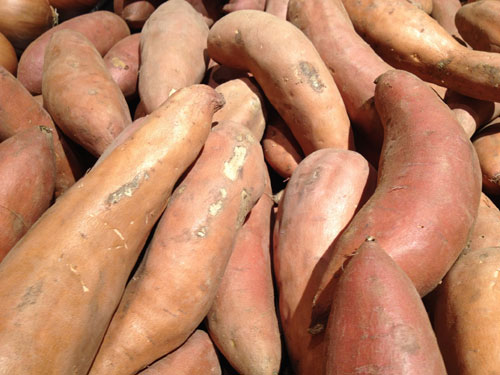SCOTS scientists are lending a helping hand to sub-Saharan Africans – by providing them with potato advice.
Specialists at the James Hutton Institute for agricultural research in Dundee are collaborating with growers from seven countries, including Ghana and Nigeria, to help improve their yams.
Yams, which are a staple food in many tropical regions, are in high demand and farmers cannot produce enough.

But now, Scotland’s respected tattie boffins have stepped in to lend their expertise.
Dr Glenn Bryan, potato genetics and breeding team leader at the institute’s Cell and Molecular Sciences group, says that the challenges of yam breeding are considerable but the potential benefits are enormous.
“Yam, despite being taxonomically different from potato, shares many similarities with this important UK crop,” he said.
“Potatoes and yams are only very distantly related but they are quite similar in their biology.

“They are both very important to the economies of the countries where they are grown because they are subsistence crops, they are staples.
“Yam is very important in Africa because it is a sought-after commodity for families and people at the poorer end.
“It’s a good crop for farmers as well because it yields a good profit. But it is beset by all kinds of problems.
“The crop faces many pest and disease threats, as well as storage issues, and has a complex reproductive system.
“The project is aimed at increasing the yields of the potentially highly profitable but highly challenging staple.”
There are more than 600 varieties of yam, with 54 million tons produced annually in sub-Saharan Africa.
It is a nutritious crop, containing high levels of carbohydrate and dietary fibre as well as vitamins, minerals and antioxidants.
Its tubers vary in size from that of a small potato up to around 2 metres in length and weighing over 60kg.
It can be prepared in many ways and is a key ingredient in foo-foo – a traditional mash made of starchy vegetables.

